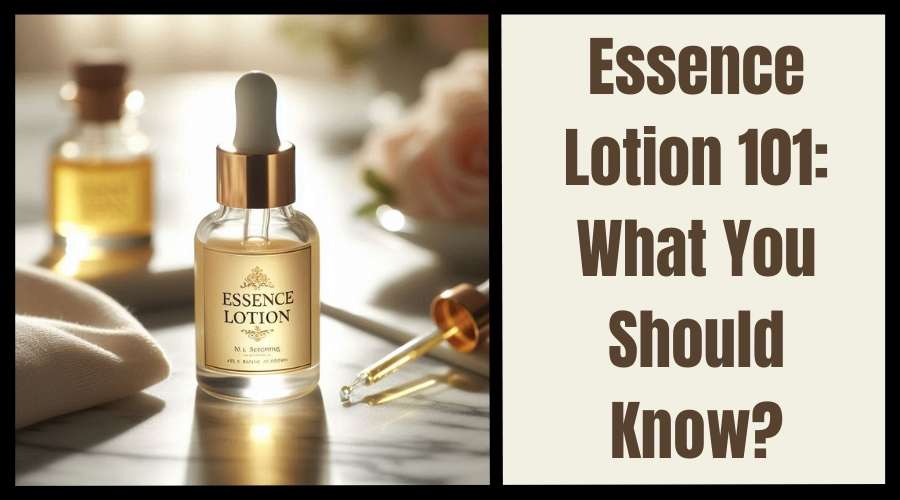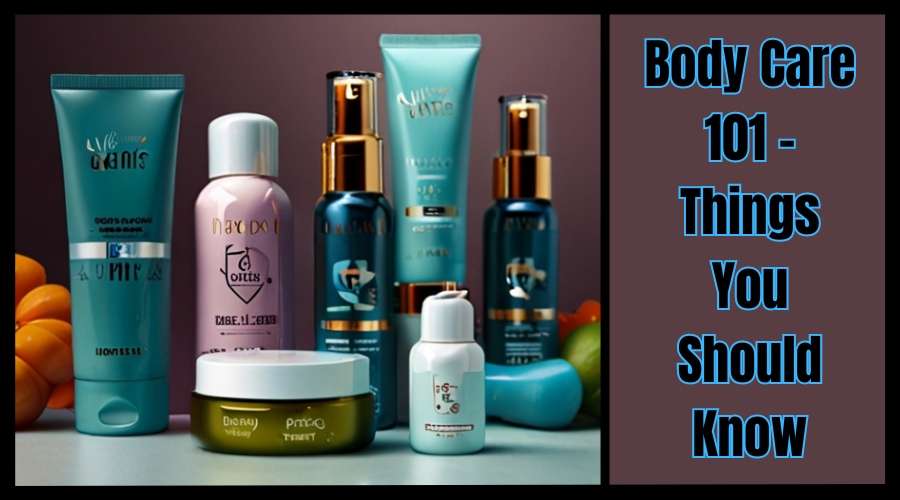Body Care 101 - Things You Should Know
Taking care of your body is not just about looking good; it's about feeling good and maintaining your health. This comprehensive guide will cover everything you need about body care. From daily routines to specialized treatments, we aim to provide all the information necessary to keep your body in shape. Let's dive into Body Care 101 and explore the essentials.
The Importance of Body Care
Body care is crucial for maintaining both physical and mental health. Healthy skin, strong nails, and shiny hair are indicators of beauty and good health. Regular body care can prevent issues from acne and dry skin to more serious conditions like infections and diseases. Moreover, caring for your body can boost your mood and reduce stress. Taking the time to pamper yourself can be a form of self-love, which is essential for mental well-being.
Daily Skin Care Routine
A good daily skincare routine is the foundation of effective body care. This includes:
1. Cleansing
Cleansing your skin removes dirt, oil, and other impurities that can clog pores and cause breakouts. Choose a gentle cleanser that suits your skin type—whether it's oily, dry, combination, or sensitive. It's essential to cleanse your skin twice daily, in the morning, to remove nighttime oils and wash away the day's grime at night.
2. Exfoliating
Exfoliating removes dead skin cells, promotes cell turnover, and reveals fresher, smoother skin. Use a mild exfoliator 2-3 times a week to avoid irritation. Over-exfoliating can damage your skin's natural barrier, so it's crucial to be gentle and not overdo it. Chemical exfoliants like alpha-hydroxy acids (AHAs) and beta-hydroxy acids (BHAs) can be effective alternatives to physical scrubs.
3. Moisturizing
Moisturizing keeps your skin hydrated and soft. Select a moisturizer that matches your skin type and apply it right after cleansing and exfoliating to lock in moisture. Look for ingredients like hyaluronic acid, glycerin, and ceramides, which are excellent for hydration and skin barrier repair.
4. Sun Protection
Applying sunscreen daily is essential to protecting your skin from harmful UV rays. Use a broad-spectrum SPF of at least 30, even on cloudy days. Sunscreen helps prevent premature aging and hyperpigmentation and reduces the risk of skin cancer. Make it a habit to reapply every two hours when outdoors.
5. Hydration and Nutrition
Hydration and nutrition play significant roles in body care. Drinking plenty of water keeps your skin hydrated and helps to flush out toxins. Aim to drink at least eight glasses of water a day. Eating a balanced diet rich in vitamins and minerals supports overall skin health. Foods high in antioxidants, like fruits and vegetables, can combat free radicals and reduce signs of aging. Incorporate omega-3 fatty acids from fish and flaxseeds to maintain skin elasticity and hydration. Vitamins A, C, and E are particularly beneficial for skin health.
Hair Care Tips
Your hair needs just as much care as your skin. Here are some tips for keeping your hair healthy:
1. Washing and Conditioning
Use a shampoo and conditioner that suits your hair type. Avoid washing your hair with hot water, as it can strip natural oils, leaving it dry and brittle. Shampoo your hair two to three times a week to prevent over-drying. After every wash, conditioning helps detangle and nourish your hair, making it more manageable and less prone to breakage.
2. Avoiding Heat Damage
Minimize heat-styling tools like blow dryers, straighteners, and curling irons. When you do use them, apply a heat protectant spray to reduce damage. Embrace air-drying whenever possible and try heat-free styling methods such as braiding for waves or rollers for curls.
3. Regular Trims
Get regular trims every 6-8 weeks to prevent split ends and keep your hair looking healthy and vibrant. Trimming your hair also promotes growth by avoiding the breakage from split ends traveling up the hair shaft.
Nail Care Basics
Healthy nails are a sign of good overall health. To keep your nails strong and attractive:
1. Keep Them Clean and Dry
To prevent bacterial infections, regularly clean and dry your nails. Use a soft nail brush to gently scrub the underside of your nails and around the cuticles.
2. Moisturize
Just like your skin, your nails need moisture. Apply a nourishing cuticle oil or cream to keep them hydrated. This can prevent your cuticles from becoming dry and cracked, leading to infections and discomfort.
3. Avoid Harsh Chemicals
Wear gloves to limit exposure to harsh chemicals in nail polish removers and household cleaners. Acetone-free nail polish removers are a gentler option for your nails. Wear rubber gloves to protect your nails and skin when cleaning or doing dishes.
Exercise and Body Care
Exercise is vital for maintaining a healthy body. It improves circulation, enhancing skin health and giving you a natural glow. Here's how to incorporate body care into your exercise routine:
1. Shower After Workouts
Sweat can clog your pores, leading to breakouts. Make sure to shower promptly after working out to cleanse your skin. Use a gentle body wash to remove sweat and bacteria without stripping your skin of natural oils.
2. Wear Breathable Clothing
Choose workout clothes made from breathable fabrics to minimize irritation and allow your skin to breathe. Fabrics like cotton and moisture-wicking materials are ideal for workouts, as they help to keep your skin dry and reduce the risk of fungal infections.
3. Stretching
Incorporate stretching into your routine to maintain flexibility and prevent injuries. Stretching before and after workouts helps to relax muscles, improve blood flow, and reduce soreness. Regular stretching can also improve your posture and overall mobility.
Stress Management
Stress can hurt your skin and overall health. Managing stress effectively is a crucial part of body care. Techniques such as meditation, yoga, and deep-breathing exercises can help you stay calm and centered. Stress can lead to skin issues like acne and eczema flare-ups due to increased cortisol levels. Incorporating mindfulness practices into your daily routine can significantly improve your mental and physical well-being.
1. Meditation
Meditation can help you manage stress by promoting relaxation and mindfulness. Spend a few minutes daily in a quiet space, focusing on your breath and clearing your mind. Apps like Headspace and Calm can guide you through various meditation techniques.
2. Yoga
Yoga combines physical postures with breathing exercises, which can reduce stress and improve flexibility. Regular practice can enhance your overall body care routine by increasing blood flow, reducing muscle tension, and promoting a sense of calm.
3. Deep-Breathing Exercises
Deep-breathing exercises can be performed anywhere, and anytime you feel stressed. Practice inhaling deeply through your nose, holding your breath for a few seconds, and exhaling slowly through your mouth. This simple technique can help lower your heart rate and promote relaxation.
Specialized Treatments
Sometimes, your body needs a little extra care. Here are some specialized treatments to consider:
1. Facials
Regular facials can help to deep cleanse and rejuvenate your skin. They can also address skin concerns such as acne, aging, and hyperpigmentation. Professional facials typically involve cleansing, exfoliation, extraction, massage, and applying a mask tailored to your skin type.
2. Body Scrubs
Body scrubs exfoliate the skin, removing dead cells and promoting a smoother texture. For best results, use a body scrub once a week. Choose scrubs with natural exfoliants like sugar or salt and moisturizing ingredients like oils or butter to nourish your skin while exfoliating.
3. Professional Massages
Massages can relieve tension, improve circulation, and promote relaxation. Consider getting a professional massage to enhance your body care routine. Different massages, such as Swedish, deep tissue, or aromatherapy, can address various needs, from stress relief to muscle recovery.
The Role of Sleep in Body Care
Quality sleep is essential for overall health and beauty. During sleep, your body repairs itself, and your skin rejuvenates. Aim for 7-9 hours of uninterrupted sleep per night. Establish a calming bedtime routine, avoid screens before bed, and create a comfortable sleeping environment. Lack of sleep can lead to dull skin, dark circles, and premature aging. Invest in good-quality bedding and maintain a consistent sleep schedule to improve sleep quality.
1. Bedtime Routine
Developing a bedtime routine can signal your body that it's time to wind down. Activities like reading a book, taking a warm bath, or practicing gentle stretches can help you relax before bed.
2. Screen Time
Avoid screens at least an hour before bedtime. The blue light emitted by phones, tablets, and computers can interfere with your sleep cycle by suppressing melatonin production. Instead, use calming activities to prepare your mind and body for sleep.
3. Sleep Environment
Keep your bedroom cool, dark, and quiet to create a sleep-conducive environment. Use blackout curtains, earplugs, or a white noise machine to eliminate disturbances. A comfortable mattress and pillows are also crucial for a good night's sleep.
Body Care Products: What to Look For?
Choosing the right products is crucial for effective body care. Here's what to look for:
1. Natural Ingredients
Opt for products with natural ingredients to avoid harsh chemicals that can irritate your skin. Ingredients like aloe vera, chamomile, and shea butter are soothing and beneficial for most skin types. Natural oils like jojoba, coconut, and argan can provide deep hydration and nourishment.
2. Suitability for Your Skin Type
Select products formulated for your specific skin type to maximize benefits and minimize adverse reactions. For example, if you have oily skin, look for non-comedogenic products that won't clog your pores. If you have dry skin, choose products with hydrating and emollient ingredients.
3. Dermatologist-Recommended
Dermatologists recommend products that are often tested for efficacy and safety, making them a good choice for your body care routine. Look for labels indicating that the product is hypoallergenic, non-comedogenic, or clinically tested.
Conclusion
Taking care of your body is a comprehensive task that involves proper skin care, hair care, nail care, and overall health maintenance. By following a consistent routine and making informed choices about your products and habits, you can ensure that your body remains healthy and vibrant. Remember, body care is not just about aesthetics; it's about feeling good and maintaining your well-being. Start implementing these tips today, and you'll see the benefits quickly.



 About us
About us 



















